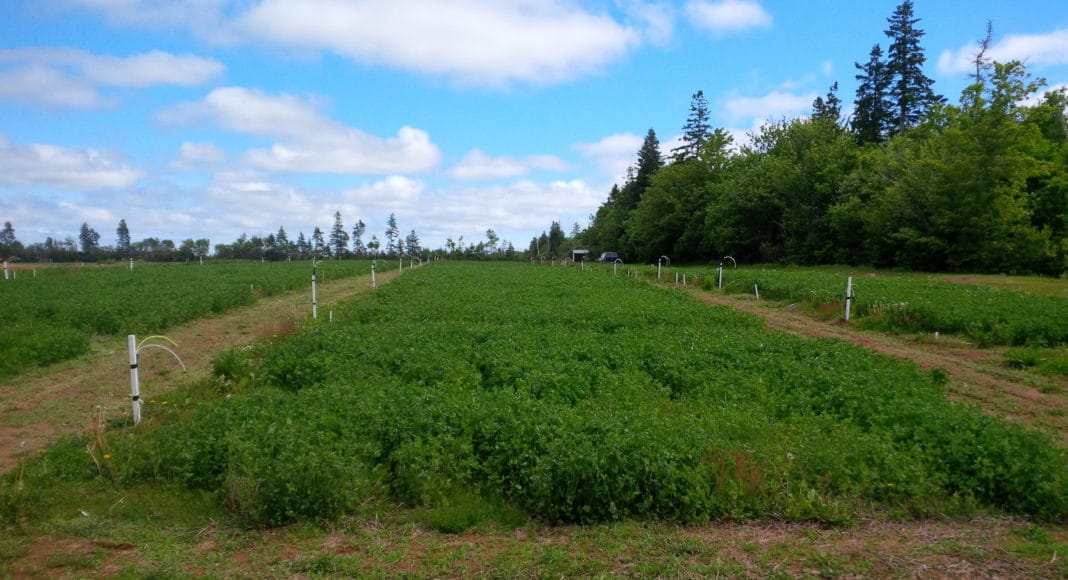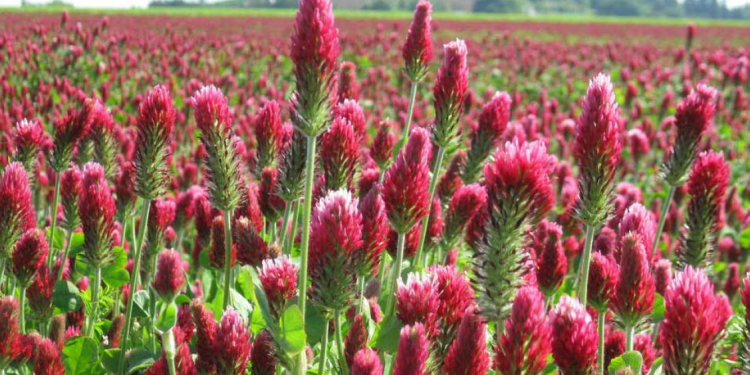A study from Agriculture and Agri-Food Canada (AAFC) has shown red clover can be beneficial if planted prior to potatoes, AAFC says in a news release on Feb. 24. Yefang Jiang, an AAFC researcher, recently completed a six-year study to find out how red clover affects nitrogen levels in soil and water during a crop rotation in Prince Edward Island.

The red clover was planted and then plowed into the soil in the fall prior to potatoes being planted. The crop became a source of nitrogen by acting as a natural fertilizer which helped potato plant growth, the release notes.
“However, without adequately accounting the nitrogen from the clover, farmers can over-apply synthetic fertilizer to potatoes if they follow the recommended P.E.I. provincial guidelines of 17 kg N/ha,” explains Jiang in the release.
This excess nitrogen can enter groundwater, streams and estuaries in the form of nitrates which can affect water quality, the release says. Excess fertilizer can also suppress potato yield.
Jiang also discovered that by planting soybean in the rotation instead of red clover it improved nitrogen usage efficiency by as much as 1.6 times and increased potato yields by 13.4 per cent.
“Soybean can create a better economic return for farmers in the short term, but it can reduce soil organic matter over the long term,” Jiang says.
To improve soil organic matter, Jiang recommends farmers considering soybean in their rotation should plant a high residue crop such as sorghum-sudan grass as a companion crop.








